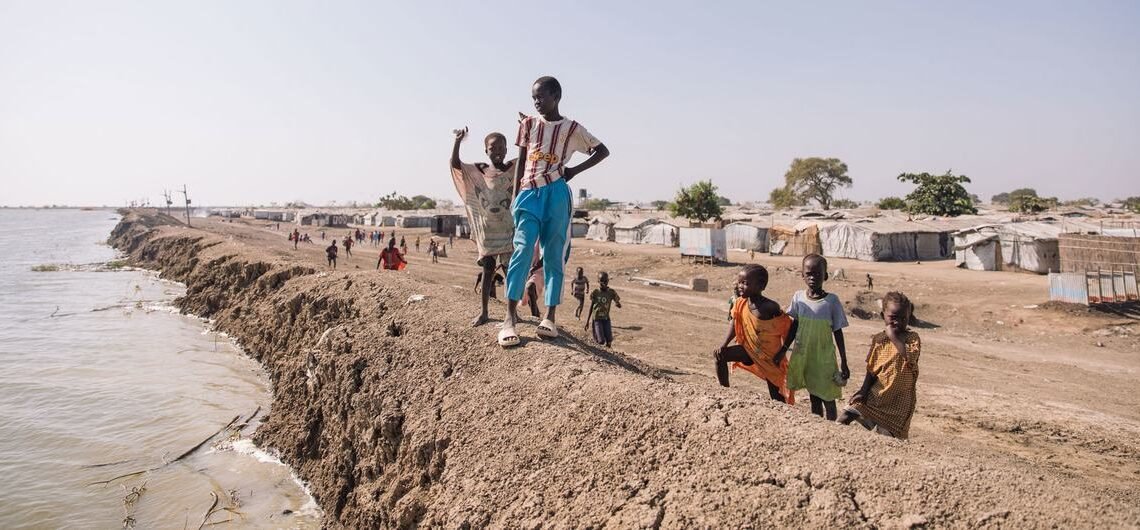Two counties in South Sudan’s Upper Nile State are teetering on the edge of famine, the Food and Agriculture Organization (FAO) warned Thursday, as violence and hunger spiral across the region.
According to the UN agency’s latest report, worsening conflict has pushed 11 of the state’s 13 counties into emergency hunger conditions, with an estimated 32,000 people facing catastrophic levels of food insecurity — nearly triple the number previously recorded.
“We are seeing the devastating impact conflict has on food security in South Sudan,” said Mary-Ellen McGroarty, Country Director for the World Food Programme (WFP).
“Conflict doesn’t just destroy homes and livelihoods, it tears communities apart, cuts off access to markets, and sends food prices spiralling upward.”
Mary-Ellen McGroarty

The situation in Upper Nile underscores a broader crisis nationwide. FAO estimates that a staggering 7.7 million people — more than half of South Sudan’s population — are facing acute food insecurity. Compounding this is the malnutrition crisis: 2.3 million children are now at risk, an increase from 2.1 million earlier this year.
With the lean and wet season approaching, FAO expects conditions to deteriorate further. The dual threat of dwindling food stocks and flooding will likely increase displacement and strain humanitarian resources already stretched thin.
There are, however, pockets of cautious optimism. In areas where violence has been less pronounced, food security has seen some improvement due to increased agricultural activity and humanitarian outreach.
FAO’s South Sudan representative, Meshack Malo, sees these regions as proof that peace pays off. “These results are proof of the dividends of peace,” he stated.
Violence Pushes Crisis to the Brink
South Sudan, which gained its independence in 2011, descended into civil war just two years later. A fragile peace agreement signed in 2018 ended much of the large-scale fighting. However, that peace is now at risk, especially in volatile regions like Upper Nile State, where renewed attacks are threatening to reignite widespread conflict.
“South Sudan cannot afford to sink into conflict at this point in time. It will plunge already vulnerable communities into severe food insecurity, leading to widespread hunger,” warned Malo.
Aid organizations say that humanitarian access must be swiftly improved. Roadblocks, insecurity, and logistical barriers continue to prevent life-saving food aid from reaching families in the hardest-hit areas.
The FAO report stressed that while short-term food relief is essential, long-term strategies are equally critical. Investments in peacebuilding and local agricultural capacity are seen as the only sustainable solutions to stop the cycle of hunger and conflict.
“Long-term peace is essential, but right now, it is critical our teams are able to access and safely distribute food to families caught in conflict in Upper Nile, to bring them back from the brink and prevent famine.”
Mary-Ellen McGroarty
As such, the fate of tens of thousands now hinges on urgent humanitarian access, political will to uphold peace, and a coordinated effort to prevent South Sudan’s food crisis from becoming a full-blown catastrophe.


















